Earth
Sign up for our newsletter
We summarize the week's scientific breakthroughs every Thursday.
-
 Climate
ClimateEven desert cities could pull drinking water from the air
Water harvesting from foggy air provided up to 5 liters of water a day in a yearlong Chilean desert experiment.
-
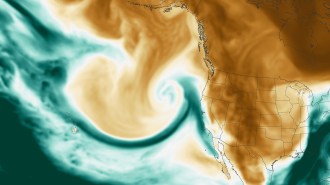 Earth
EarthEven epic rainfall may not be enough to refill SoCal’s aquifers
More than a dozen atmospheric rivers dumped rainfall on California in 2023 but replenished only 25 percent of the water lost from aquifers since 2006.
By Sid Perkins -
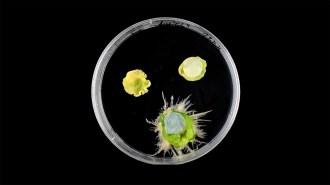 Plants
PlantsA bacteria-based Band-Aid helps plants heal their wounds
Recent research into bacterial cellulose patches may speed plants' recovery, improve grafting and help with preservation.
-
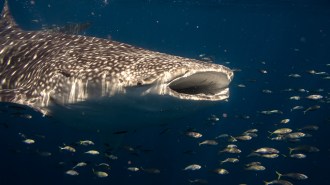 Animals
AnimalsMigrating whale sharks make pit stops at oil and gas rigs
Human-made structures act as artificial reefs, luring plankton and, in turn, Earth’s largest fish. That could put whale sharks at risk of ship strikes.
-
 Climate
ClimateHistorical writings reveal how people weathered the Little Ice Age
Records from 500 years ago document floods, famine and death in 16th century Transylvania due to wild weather swings during the Little Ice Age.
By Alex Viveros -
 Climate
ClimateJust a small rise in global temperatures could be deadly
As early as mid-century, an area of land that adds up to the size of the U.S. could hit temperatures hazardous for human health.
By Meghan Rosen -
 Earth
EarthSpooky floating lights in South Carolina could be earthquake farts
Gases that rise from the earth during earthquakes could explain strange sightings of floating balls of light.
By Nikk Ogasa -
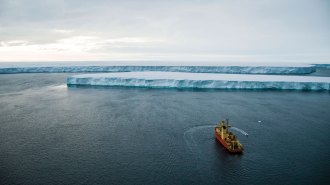 Climate
ClimateCan geoengineering plans save glaciers and slow sea level rise?
As climate change melts West Antarctica’s glaciers, scientists are proposing bold ideas to avoid devastating sea level rise. Will they work?
By Douglas Fox -
 Health & Medicine
Health & MedicineToxic dangers lurk in LA, even in homes that didn’t burn
Urban wildfires like LA’s make harmful chemicals from burning plastics and electronics that can make indoor air dangerous for months.
-
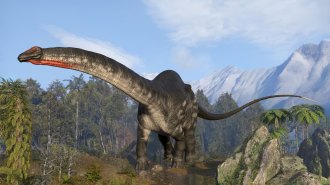 Life
LifeA new book explores the evolutionary romance between plants and animals
Riley Black’s new book, When the Earth was Green, uses the latest research to envision the ancient worlds of our favorite prehistoric animals.
-
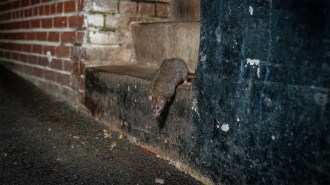 Animals
AnimalsHotter cities? Here come the rats
Well, rats. A study of 16 cities shows that higher ambient temperatures and loss of green space are associated with increasing rodent complaints.
-
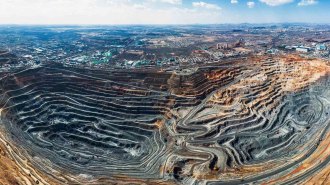 Earth
EarthAncient rocks reveal when rivers began pouring nutrients into the sea
Rivers began pumping weathered material into the sea about a billion years after Earth formed, suggesting continents may have gotten an early start.